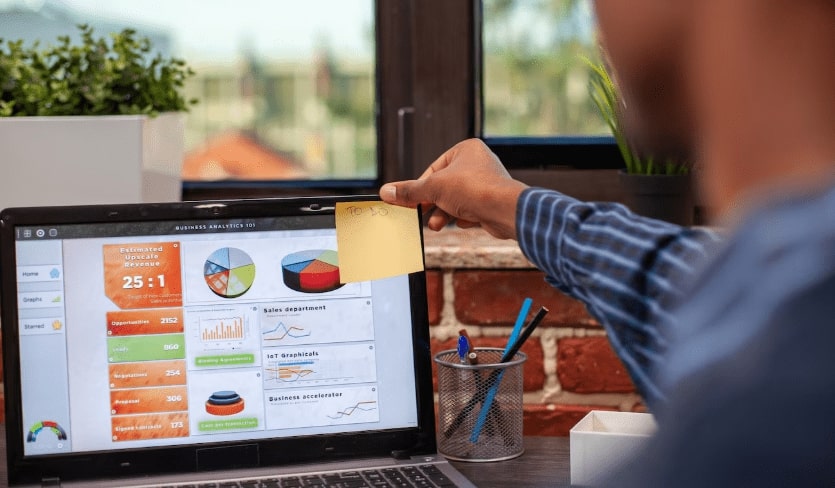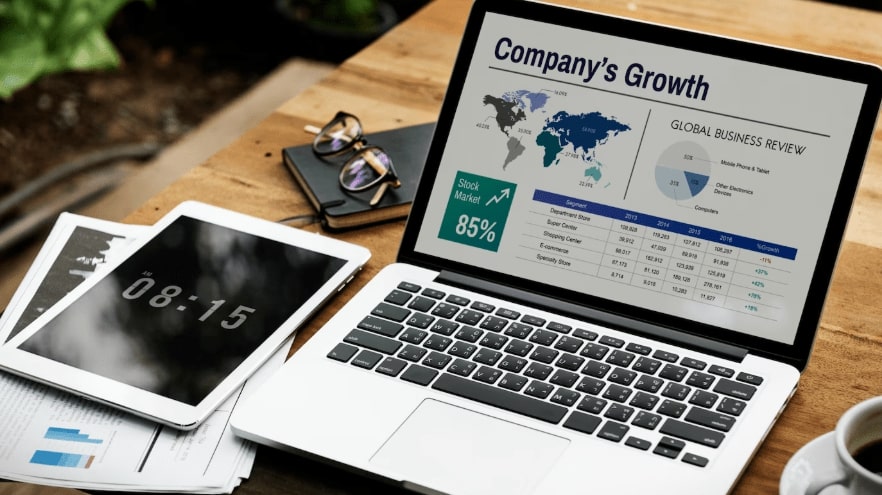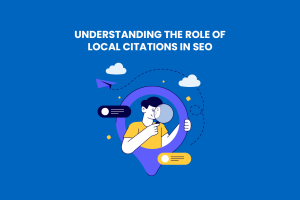Pay-per-click (PPC) advertising has become one of the most powerful tools for local businesses that want to connect with potential customers in their area. According to recent studies, 46% of all Google searches are seeking local information, and 76% of people who search for something nearby visit a business within a day. This shows the growing importance of PPC campaigns in ensuring that your business stands out in competitive local markets.
If you are running a small or medium-sized business and want to boost your visibility, attract targeted leads, and maximize ROI, PPC can be a game-changer. In this article, we will walk you through How to Use PPC for Your Local Business? step by step, so you can take control of your marketing and drive measurable results. Stay with us on the HDM digital marketing blog to discover proven strategies that can help your business thrive.

Why Local Businesses Should Invest in PPC?
Traditional advertising such as billboards and flyers can only go so far. Modern customers begin their search online, and PPC allows your business to appear at the exact moment they are looking for your product or service. For local companies, this means higher visibility, more targeted leads, and better control over your advertising spend.- Target Customers in Your Area: One of PPC’s strongest advantages is geo-targeting. You can set campaigns to appear only within a certain city, neighborhood, or even a radius around your store. This ensures your ads reach the right audience instead of wasting budget on irrelevant clicks. By tailoring ad copy to include local references and customizing promotions for nearby customers, you increase the chance of clicks turning into real visits. This is where PPC shines for local businesses that rely on foot traffic and immediate conversions.
- Increase Visibility on Search Engines: Consumers trust businesses that show up at the top of Google search results. Unlike SEO, which may take months to deliver, PPC provides instant visibility. This is especially critical when competing against other local companies in crowded markets. By investing in strategies such as Google Ads Services, you can ensure your ads appear when people search for terms related to your products or services. Enhancing visibility in search results not only boosts brand awareness but also builds credibility among local audiences.
- Control Your Marketing Budget Efficiently: PPC offers unmatched flexibility for managing your budget. You can set daily or monthly limits, pause campaigns anytime, and track performance with detailed analytics. This level of control is ideal for local businesses that must optimize every dollar they spend. Learning techniques from guides such as How to Boost PPC Conversion Rates helps you refine campaigns and avoid wasted clicks. With this approach, every part of your budget works toward delivering qualified leads and measurable ROI.
Choosing the Right PPC Platforms for Local Marketing
Selecting the right platforms is critical when planning How to Use PPC for Your Local Business?. Each platform offers unique advantages, from search-driven intent to social audience engagement. Local businesses should evaluate their target audience’s behavior and choose channels that provide maximum reach within their community.- Google Ads for Local Businesses: Google Ads remains the most powerful platform for local search marketing. It allows your business to appear at the top of search results when potential customers are actively looking for services like yours. Local search ads on Google Maps are particularly effective for driving store visits. By applying tactics borrowed from Google Ads for Ecommerce, you can adapt proven strategies to service-based businesses perfectly. The platform’s ability to combine keyword targeting, location extensions, and mobile optimization makes it indispensable for local growth.
- Facebook & Meta Ads for Local Targeting: Facebook and Instagram allow you to connect with customers based on demographics, interests, and geographic location. This makes them perfect for businesses that want to build community awareness and encourage engagement. Running location-based campaigns on Meta Ads helps you reach users scrolling through their feeds in your area. Eye-catching visuals, customer reviews, and interactive formats like carousel ads enhance local recognition and brand trust.
- Other Advertising Platforms to Consider: Beyond Google and Meta, other platforms such as Microsoft Ads, Yelp Ads, or even Waze Ads can bring excellent results for specific industries. These platforms often provide more affordable clicks while still targeting local intent.
Setting Up a Local PPC Campaign
When learning How to Use PPC for Your Local Business?, one of the most critical steps is setting up your campaign correctly. A smart and professional campaign ensures your budget is invested in the right places, targeting the right audience, and delivering measurable results. From choosing local keywords to designing geo-targeted ads, every detail matters in achieving success.Keyword Research for Local Searches
The foundation of any PPC campaign lies in choosing the right keywords. For local businesses, this means focusing on search terms that reflect local intent. Customers often use queries like “best dentist near me” or “pizza delivery in Dubai or Sharjeh.” Identifying these keywords helps you capture audiences who are ready to convert.- Step 1; Steps for effective keyword research include:
- Step 2; Use keyword tools to identify high-volume, low-competition local terms.
- Step 3; Add location-based modifiers like city names or neighborhoods.
- Final Step; Include long-tail keywords that mirror customer intent.

Creating Geo-Targeted Ads
Geo-targeting allows you to display ads only in specific locations where your potential customers live or work. This ensures that your ad spend is concentrated on audiences most likely to take action. Effective geo-targeting involves setting radius-based campaigns, targeting by postal codes, or excluding irrelevant regions. For industries like property or rental services, you can apply proven approaches from resources such as Google Ads for Real Estate Business: 2025 Guide and its subjects.Optimizing Ad Copy for Local Relevance
Your ad copy should reflect the local flavor of your business. Including your city’s name, references to popular neighborhoods, or even local events creates a sense of familiarity and trust. An optimized local ad might highlight proximity (“just 5 minutes from downtown”) or special offers for community members. By making ads feel relevant, you increase both click-through rates and conversions.Tracking and Optimizing Local PPC Campaigns
Launching a campaign is only half the journey. To truly master How to Use PPC for Your Local Business?, you must continuously monitor and optimize performance. Tracking key metrics, adjusting bids, and experimenting with variations are essential for staying ahead of competitors and maximizing ROI.Monitoring Clicks, Impressions, and Conversions
Successful PPC campaigns rely on consistent tracking. Metrics such as clicks, impressions, and conversions provide valuable insights into what’s working and what isn’t. For example, a high number of impressions but low clicks may indicate weak ad copy. Regular monitoring ensures you can quickly identify underperforming keywords or ads and reallocate your budget toward better-performing ones. Over time, this discipline improves efficiency and lowers wasted spend.Adjusting Bids for Maximum ROI
Smart bidding adjustments can significantly improve your campaign’s return on investment. By increasing bids for high-performing keywords or peak times of the day, you capture more valuable leads without overspending. Conversely, lowering bids on underperforming keywords saves money and helps redirect resources. With careful bid management, local businesses can achieve sustainable growth. For deeper insights, consult expert resources like Reduce CPC and Get More Conversions and more.A/B Testing Ad Variations
No campaign should remain static. A/B testing different ad elements; such as headlines, descriptions, or calls to action; reveals what resonates most with your audience. Even small tweaks can deliver significant improvements in click-through and conversion rates. To implement A/B testing successfully:- Test one element at a time (e.g., headline vs. headline).
- Run tests long enough to gather meaningful data.
- Apply winning variations across your campaigns.
Common Mistakes to Avoid in Local PPC Campaigns
Even when you know How to Use PPC for Your Local Business?, simple mistakes can reduce performance and waste your budget. Many local businesses fall into common traps that prevent them from achieving the results they want. By identifying these errors early, you can refine your campaigns and stay ahead of competitors.Ignoring Negative Keywords
One of the biggest mistakes in PPC is forgetting to use negative keywords. Without them, your ads may appear for irrelevant searches, leading to wasted clicks. For example, if you run a luxury salon, you should exclude terms like “cheap food in Dubai” or “free meal in Dubai” to avoid unqualified leads. To prevent wasted spend, regularly review your search term reports and add irrelevant queries as negative keywords. This practice ensures your budget goes only toward attracting qualified customers. For further guidance, strategies like Get More Customers with Google Ads: 10 Proven Strategies That Work can help you refine your targeting.Overlooking Mobile Users
More than 60% of local searches are done on mobile devices. If your ads and landing pages are not mobile-friendly, you risk losing a large percentage of potential customers. Optimizing for mobile means creating fast-loading pages, clear call-to-action buttons, and concise ad copy. With mobile-first strategies, you can capture leads instantly and provide a seamless customer experience.Not Updating Ads Regularly
Another common issue is running the same ads for months without updates. Stale ads reduce engagement and fail to reflect seasonal promotions or changes in customer behavior. To stay relevant, update your ads frequently, test new offers, and refresh your visuals. Businesses that consistently update their campaigns not only attract more clicks but also boost ROI. Effective management tips like those from Boost ROI with Google Ads Management can help you maintain campaign freshness.Conclusion: Start Growing Your Local Business with PPC Today
PPC is a powerful tool that allows local businesses to target the right customers, control their budgets, and measure results effectively. From choosing the right platforms to avoiding common mistakes, every step matters. When applied correctly, strategies on How to Use PPC for Your Local Business? can increase visibility, generate more leads, and drive long-term growth. If you want expert support in running effective campaigns, our team at HDM in the UAE is here to help. With professional Google Ads Services and tailored Digital Marketing Services, we ensure that your business reaches the right audience at the right time. To get started, contact us at +971 56 26 01 368 or fill out our consultation request form today. Frequently Asked Questions (FAQ)- What budget should I start with for local PPC campaigns? There is no fixed budget, but many local businesses start with $500–$1,000 per month. The key is to monitor results closely and scale gradually based on ROI.
- How quickly can I see results from PPC advertising? Unlike SEO, PPC delivers immediate results. Once your campaign goes live, you can start receiving clicks and leads the same day.
- Should I run PPC alongside SEO? Yes. PPC provides instant visibility, while SEO builds long-term credibility. Running both together creates a balanced digital strategy.
- Can PPC help small businesses compete with larger competitors? Absolutely. With precise targeting, strong ad copy, and smart bidding, even small businesses can capture local customers before larger competitors.
- How do I know if my PPC campaign is successful? Success can be measured by tracking clicks, conversions, and return on ad spend (ROAS). If leads and sales are increasing without overspending, your campaign is on the right track.




